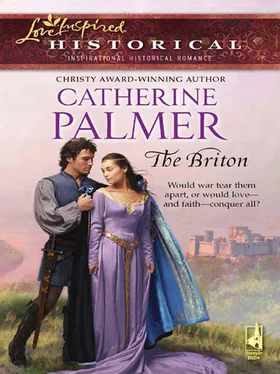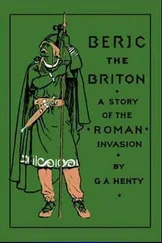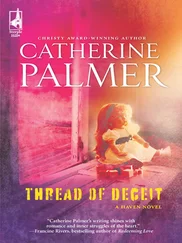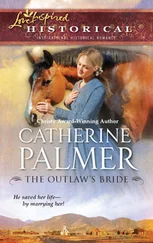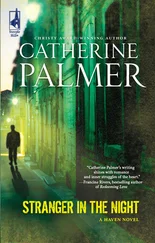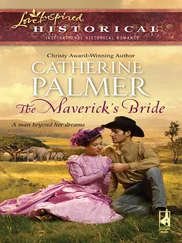The dense bank of clouds had rolled back, leaving a cover of newly washed stars. Bronwen dug her bare toes into the wet sand and shook out her long hair as she wandered toward the water’s edge. Some years ago, her father had employed a tutor, a man who once had been steward to a Norman family in the town of Preston. He had taught Bronwen and Gildan to speak French, to learn how their enemy viewed the world, and to understand some sense of the characteristics of the Christian God.
Much of what the tutor had told the girls was either laughable or revolting, but his explanation of the natural world fascinated Bronwen. On this night, she could see that nature was in balance again. Earth, fire, water, air—the four elements making up everything on the earth—must always remain in harmony, the tutor had said. When one asserted itself, the others brought it back into order.
So it was with kings, lords and serfs. It would take a mighty king indeed to subdue all of England and bring it under control. Bronwen had heard that Matilda had such a man in mind—her son Henry Plantagenet—to rule England if she prevailed against King Stephen in their civil war. But Henry was a Norman to the core, and Bronwen doubted he had any interest in the island to the north of his French homeland. She didn’t care what the Normans did anyway. As long as they kept their distance from Amounderness and Rossall Hall.
As she strolled, Bronwen came upon a log washed up by the storm. But as she sat, her eye caught a movement down the beach near the hut. If she had wakened Haakon as she’d left the hut, he could have revenge in mind. Heart pounding, she slipped behind the log, hoping its shadow would conceal her.
As she watched the figure draw nearer, Bronwen saw it was Haakon. She closed her eyes and prayed to the gods—even to Martin’s one God—that she might be spared. How foolish she had been to leave the hut unarmed. Yet, even if she had a weapon, she could never hope to physically overcome a strong, well-trained warrior. Would the man be so foolish as to harm his father’s wife? Of course. He could kill her and slip back into the hut. All would believe him innocent.
She heard the Viking’s footsteps crunching the sand near the log, and then he stopped. “So, Bronwen the Briton, we meet again in the dark of night. Is it your habit to wander beaches alone and without protection?”
With a gasp, she sat up. “Le Brun? But I thought you were…someone else.”
“Your Viking protector? But you have no fear of that man, do you? At dinner you were quite impressive.”
“And you—crouching in the corner like a mouse? Do you fear him?”
“I fear only God.”
“So, you follow your friend to London to pay homage to this God so favored by Normans. Or are you still spying out Amounderness?”
The man chuckled but made no answer. “You must call me Jacques. We know each other too well for formalities. And I see you have put my mantle to good use. I’m glad of that. Now perhaps you’ll tell me why you attempt to hide when the stars illuminate everything on this beach.”
Bronwen stood and unclasped the cloak. “Stars reveal the future and the present. But they don’t show your face, sir. You are the one who hides, not I. Here—take your mantle. I want nothing to do with a scoundrel and a spy.”
Jacques caught the hood of the cloak before it could slip to the ground. “Keep it, my lady. I beg you.”
“No, I—”
“Please honor my request.” He drew the garment around Bronwen’s shoulders again and fastened the clasp at her neck. “I am not ready to collect it just yet. We are met untimely.”
His fingers lingered for a moment at the clasp as he looked into her eyes. Then he drew away, took a place on the log and stretched out his long legs. Reaching up, he grasped Bronwen’s hand and gently pulled her down beside him. She settled herself at some distance, wary of the Norman yet grateful for the warmth of his mantle.
“Your husband is at sea,” he said. His voice was deep, and his eyes searched the horizon as he spoke. “When were you married?”
“This morning. Soon after the rite, we left Rossall Hall in haste because of the storm.”
“Little good it did. And now you spend your wedding night sitting on a wet log.”
“It is of no consequence to me. My husband and I have never spoken a single word. Our vow is all that unites us.”
“A vow has great power, Bronwen.” He glanced at her. “May I call you by name?”
“As you wish. It matters not, for I don’t imagine we shall meet again after this night.”
Jacques leaned back against a twisted branch and folded his arms across his chest. “You were imprudent to leave the safety of the hut. You have no protection.”
“I assumed the men were sleeping. Clearly I was mistaken.”
“A leader of men is never fully at rest, even in his own home. When I saw you leave, I feared for your safety.”
Bronwen clasped her hands together, uncomfortable at his words. “You are leader of your party, then. But who do you serve—Matilda? Stephen? Or perhaps the Scot, David, who presumes to claim Amounderness by virtue of Stephen’s treaty.”
“You know more of politics than a woman should, madam. Perhaps you had best tend to your new home and leave such intrigues to your husband.”
Annoyed, Bronwen stood. “A wise woman knows as much of politics as any man. You will recall that my father willed his landholdings to me—not to my husband. He prepared me well for that responsibility, and I should like to know who spies out our lands and for what lord?”
“I am no spy, Bronwen.” Jacques rose to face her. “I serve Henry Plantagenet, the son of Matilda Empress, who has battled King Stephen these many years. Henry is wise and learned beyond his eighteen years. Already he is heir to Anjou and Normandy in France. Many in England support him.”
Bronwen squared her shoulders. “We Britons will not serve any Norman king—and you have my permission to report that to your beloved Henry Plantagenet. Our men will fight to the death to protect Rossall from Norman rule.”
“You’re already a pawn of King Stephen.” Jacques shook his head. “Don’t be so foolish as to think you rule yourselves. Stephen has given your lands to Scotland by treaty. Would you not rather have a fair and just king like Henry Plantagenet? I assure you, he would treat your people well in his dealings with other landowners in this country.”
“I know nothing of this young Plantagenet. Neither Stephen nor David of Scotland has made his presence felt in Amounderness—and for that I am grateful. Certainly Plantagenet has never come our way. Our lands have been Briton since time began, and they will remain so.”
As Bronwen fought the frustration and vulnerability that shackled her, Le Brun reached out and covered her hands with his own. Warm and strong, his fingers stroked her wrists, and his thumbs pressed against her palms. Startled, she shrank back, but he held her firmly.
“Have you been so sheltered that you tremble at a man’s touch?” he asked. “I mean you no harm, my lady. We speak from our hearts. Though we differ, the honesty in our words is good. Forgive me if I’ve dismayed you.”
“You do dismay me, sir. And more than that.”
Bronwen drew her hands from his and attempted to tame her hair into some semblance of order. But again, Jacques caught them.
“Leave your hair,” he said, drawing her hands to his chest. “It’s beautiful blowing in the wind as it does now.”
At his words, Bronwen felt the blood rush to her face, and she turned her focus to the ground. She had been told she was plain, especially compared with Gildan, the golden one. Often while standing beside her sister, Bronwen pictured herself—a thin, angular, olive-skinned creature. No one, not even Enit, had ever called her beautiful.
Читать дальше
